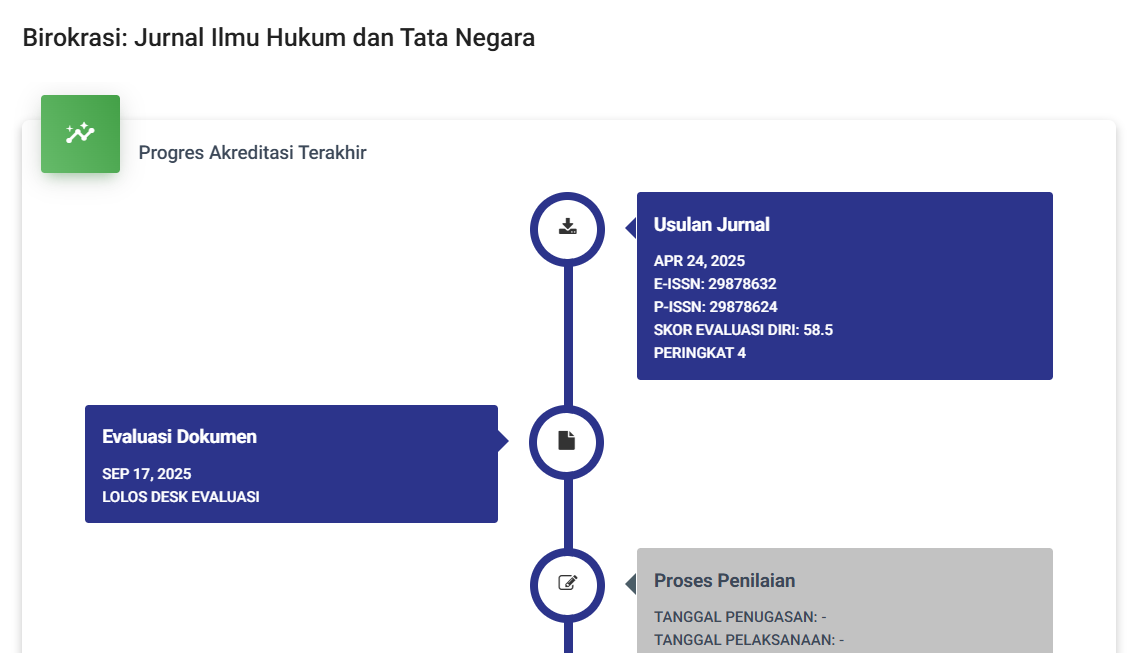Kontribusi Hukum Pidana Islam terhadap Pembentukan Warga Negara yang Berkeadaban
DOI:
https://doi.org/10.55606/birokrasi.v2i4.1588Keywords:
Islamic Criminal Law, Citizenship, Civility, Maqasid al-ShariahAbstract
Islamic criminal law significantly contributes to shaping a civilized citizenry through the enforcement of principles of justice, responsibility, and respect for human rights. This article aims to analyze how Islamic criminal law, with a maqasid al-shariah approach, provides a moral and ethical foundation for developing individual character as part of a civic community. The study identifies the core elements of Islamic criminal law, such as the concepts of hudud, qisas, and ta'zir, and examines their implementation in the context of a modern pluralistic state. Using a normative-juridical method and a comparative approach, this article explores the harmonization of Islamic criminal law with the positive legal system in Indonesia. The findings indicate that Islamic criminal law not only seeks to uphold legal justice but also aims to build a society rooted in ethical and civilized values. Integrating these values into national legal policies has the potential to strengthen a civic identity that is religious, just, and civilized, while respecting societal diversity. This article recommends enhancing Islamic legal education as a strategic effort to create synergy between Islamic criminal law and the development of exemplary citizens.
References
Ahmad, M. M. N. (2014). Analisis wewenang Polri dalam rangka penanggulangan tindak pidana terorisme di Indonesia ditinjau dari segi hak asasi manusia. Fakultas Hukum Universitas Sebelas Maret.
Ahmad, M. M. N. (2016). Eksistensi penerapan hukuman mati di Indonesia. Jurnal Ilmu Syari'ah dan Hukum, 1(1), 3–4. Fakultas Syari'ah IAIN Surakarta. ISSN: 2527-8169 (P); 2527-8150 (E).
Ahmad, M. M. N., & Novianto, B. A. (2023). Nilai-nilai pendidikan fiqih dalam kitab Nurul Burhan karya Syaikh Muslih Bin Abdurrahman Al Maraqi. Jurnal Pendidikan dan Konseling, 5(1), 1181. E-ISSN: 2685-936X; P-ISSN: 2685-9351.
Ahmad, M. M. N., & Saputri, A. M. W. (2022). Analisis kritis perkawinan yang dilarang di Indonesia ditinjau dari fiqih perbandingan mazhab. Jurnal Bedah Hukum Fakultas Hukum Universitas Boyolali, 6(1), 61.
Ahmad, M. M. N., Nihayah, N. K., & Winati, A. A. (2023). Analisis kawin paksa dalam perspektif hukum Islam. El-Faqih: Jurnal Pemikiran dan Hukum Islam, 9(2), 144–145.
Al-Farabi, A. (1997). Al-Madina al-Fadila. Cairo: Dar al-Turath al-‘Arabi.
Al-Ghazali, A. (2004). Al-Mustasfa min 'Ilm al-Usul. Beirut: Dar al-Ma'rifah.
Al-Juwayni, A. (2007). Al-Burhan fi Usul al-Fiqh. Beirut: Dar al-Turath al-‘Arabi.
Al-Kabisi, M. (2006). Al-Jami' fi al-Fiqh al-Islami. Damascus: Dar al-Qalam.
Al-Maqrizi, T. (1996). Al-Muqaffa al-Kabir. Cairo: Dar al-Ma'rifah.
Al-Mawardi, A. (2011). Al-Ahkam al-Sultaniyyah wa al-Wilayah al-Dinīyyah. Beirut: Dar al-Kutub al-Ilmiyyah.
Al-Qaradhawi, Y. (1995). Al-Halal wa al-Haram fi al-Islam. Cairo: Dar al-Qalam.
Al-Tabari, M. (1992). Tafsir al-Tabari. Beirut: Dar al-Ma'rifah.
An-Na'im, A. A. (2008). Islam and the Secular State: Negotiating the Future of Sharia. Harvard University Press.
Asy-Syaukani, M. (2002). Irshad al-Qulub fi Ahsan al-Tafseer. Beirut: Dar al-Kutub al-Ilmiyyah.
Badan Pusat Statistik (BPS) Aceh. (2023). Statistik kriminalitas Aceh 2020-2022. Banda Aceh: BPS Aceh.
Esposito, J. L., & Voll, J. O. (2001). Islam and Democracy. Oxford University Press.
Faisal, H. (2020). The role of Pancasila in Indonesia's legal system. Indonesian Constitutional Law Journal, 8(1), 112–127.
Faruq, U. (2021). Maqasid al-Shariah and national law integration. Journal of Islamic Law and Policy, 6(3), 88–99.
Firdaus, A. (2021). Sharia law implementation in Aceh: Challenges and opportunities. Aceh Law Journal, 11(4), 200–213.
Hamzah, A. (2011). Metode Penelitian Hukum. Jakarta: Rajawali Pers.
Hosen, N. (2007). Sharia and Constitutional Reform in Indonesia. ISEAS-Yusof Ishak Institute.
Kamali, M. H. (2008). Shariah Law: An Introduction. Oxford University Press.
Moleong, L. J. (2007). Metodologi Penelitian Kualitatif. Bandung: Remaja Rosdakarya.
Nurul, H. (2019). The role of Islamic criminal law in shaping national character. Journal of Islamic and Comparative Law, 14(2), 56–73.
Siti, Z. (2019). The impact of religious pluralism on national law. Law Studies, 45(1), 78–92.
Usman, M. (2018). The challenges of implementing Sharia in Indonesia. Law and Society Review, 34(2), 150–165.
World Justice Project. (2022). Rule of Law Index 2022. Washington, DC: WJP.
Zulkarnain. (2017). Rehabilitative approaches in Islamic criminal law. International Journal of Law and Justice, 22(1), 89–101.








